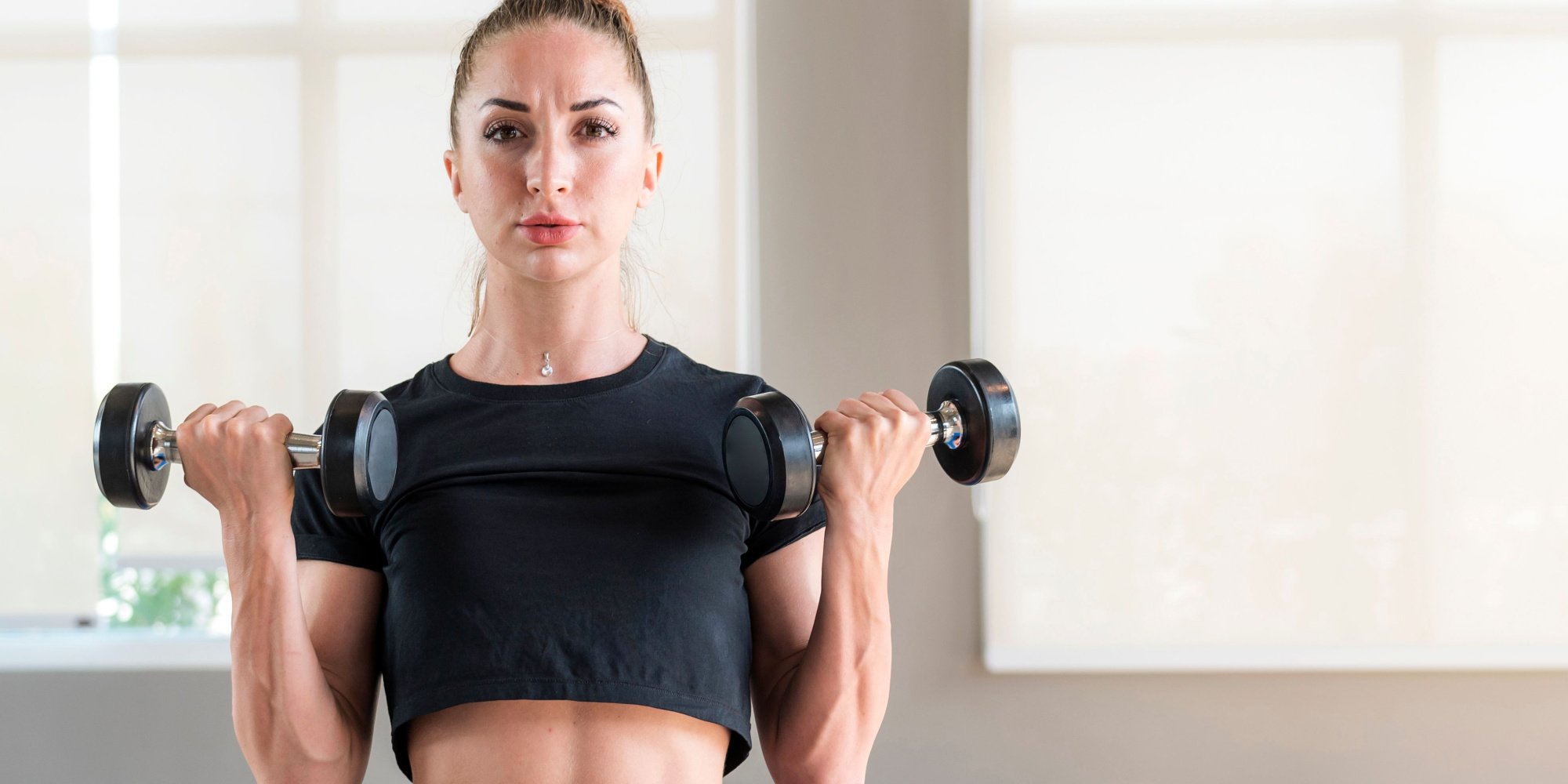5 Most Frequently Asked Women’s Health & Fitness Questions Answered
Jun 30, 2023 mindpumpLadies–you have questions, we have answers. The fitness industry is plagued with so many inconsistent messages, it’s difficult to know what women should believe.
If you want the answers to the most common fitness and health questions–keep reading!
1. Do I Need to Eat Less to Lose Weight?
You’re not going to like my answer, but it really depends. The short answer is that yes, you do need to be in a calorie-deficit to lose weight. It all comes down to the amount of energy you take in, and how much energy you expend. If you eat more energy (or calories) than you burn, you’ll gain weight. If you burn more energy than you eat, you’ll lose weight. Maintaining an energy balance means your weight will stay the same.
Now, there are situations when fewer calories are not the answer. There have been many situations when a woman I am training can’t seem to lose weight, and is only eating 1,200 calories a day. Just from a health standpoint, dropping her calories would not be the best course of action.
For this type of client, you would want to increase calories by 10%-20%, with protein consumption being a priority. With the additional calories, weight training would be recommended to add more lean muscle mass and enhance metabolic function.
With this in mind, it all depends on the client, current practices, and nutritional habits whether to reduce the number of calories per day or not.
2. Is Cardio or Resistance Training Better for Losing Weight?
Studies will show that cardio is effective when it comes to reducing body mass, but that resistance training, or a combination of resistance training and cardio, will yield better results long-term than cardio alone.
During a typical workout, most women can burn more calories compared to resistance training, but that doesn’t necessarily mean they’ll lose more weight. Women can definitely drop pounds doing cardio every day, but a lot of that weight loss will come from muscle, which we want to avoid.
The best method to losing weight, and keeping it off, is a combination of resistance training and proper nutrition habits. This has been found to produce the best results when it comes to sustainable weight loss.
3. Will Lifting Weights Make Me Look Bulky?
The answer to this question is clear: lifting weights will not make you look bulky. Some women look at professional powerlifters and think that they will get the same results if they start lifting weights.
For the average lifter, who works out 3–5 days a week for about 45 minutes per workout, there is no way you will get big enough to the point where you look heavier than before. In fact, adding muscle to your frame will have you looking more toned, and result in an aesthetically pleasing body.
Gaining more muscle while resistance training will improve your metabolism, which means you will burn more calories at rest and body fat percentage can potentially decrease. In terms of body composition, the percentage of muscle mass to fat mass will improve.
4. Should I Do a Cleanse to Jumpstart My Weight-Loss?
This is another easy question to answer: no, steer clear of diet cleanses. Your liver already functions to detoxify and neutralize toxins, making cleanses null in void. Subjectively, many women do feel better, and lighter, after a detox, but that can mostly be attributed to the fewer calories, whole foods, and minimal-to-no processed foods consumed during that time. Without added sugars, practically zero fat, and additives that can cause inflammation, it makes sense that people feel like cleanses are “working.”
From a weight-loss standpoint, women can lose weight in a short amount of time. But the moment you stop the cleanse and revert to old habits, what do you think will happen?
The best way to lose weight from a nutritional standpoint is slowly adopting more approachable and sustainable habits. Don’t drastically cut calories while completely overhauling every meal and snack overnight; make small changes over time, one meal or snack at a time, that promotes wholesome, nutrient-dense foods and less heavily-processed, boxed or packaged items.
5. Should I Feel Sore or Wiped Out After Every Workout?
If you’re finishing your workouts drained and unmotivated to do much else for the rest of the day, you’re doing your workouts wrong.
There will be days when we push ourselves a little harder, and you should on occasion if you want to see results, but overall progress will decline if you try to do this every workout.
Our muscles need time to recover, and if you are constantly damaging your muscle fibers without allowing time for them to repair, your body will be under constant stress, sleep quality will decline, and workout performance will suffer. The last thing your body will want to do is lose weight or fat while in this condition.
Depending on training frequency, scheduling one or two light workouts a week will do your body some good, and could be exactly what you need if you want your body to respond appropriately.







